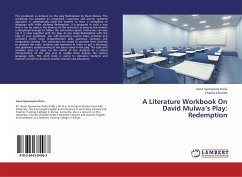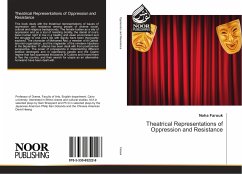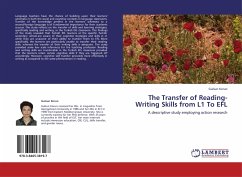
"From Resistance to redemption"
A postmodern reading of Athol Fugard's selected plays
Versandkostenfrei!
Versandfertig in 6-10 Tagen
27,99 €
inkl. MwSt.

PAYBACK Punkte
14 °P sammeln!
The study traces the various approaches adopted to study Athol Fugard's plays. Its main thrust is that he is someone who managed to put the disenfranchised on stage. It is also mindful of Fugard's inability to put his views in an explicit format, especially when writing what many consider to be a blue print for his plays. It is as if he mistrusts the value of words to convey his innermost feelings. It is for this reason that the study adopts a postmodern approach to his plays, since this movement avowedly mistrusts "grand narratives" in accurately representing reality. It specifically isolates...
The study traces the various approaches adopted to study Athol Fugard's plays. Its main thrust is that he is someone who managed to put the disenfranchised on stage. It is also mindful of Fugard's inability to put his views in an explicit format, especially when writing what many consider to be a blue print for his plays. It is as if he mistrusts the value of words to convey his innermost feelings. It is for this reason that the study adopts a postmodern approach to his plays, since this movement avowedly mistrusts "grand narratives" in accurately representing reality. It specifically isolates two postmodern tropes in the analysis of his plays; namely the "pastiche" and "postmodern sublime". The conclusion drawn from this approach is that it is indeed useful to view his plays from this perspective with the two abovementioned tropes as guiding tools. It further concludes that he made a lasting contribution to the fight against injustice and oppression by working incrementally. There is a distinct message from each play and his ultimate view of the world will culminate plays where he becomes more vocal and articulate about the injustices visited upon the majority.












